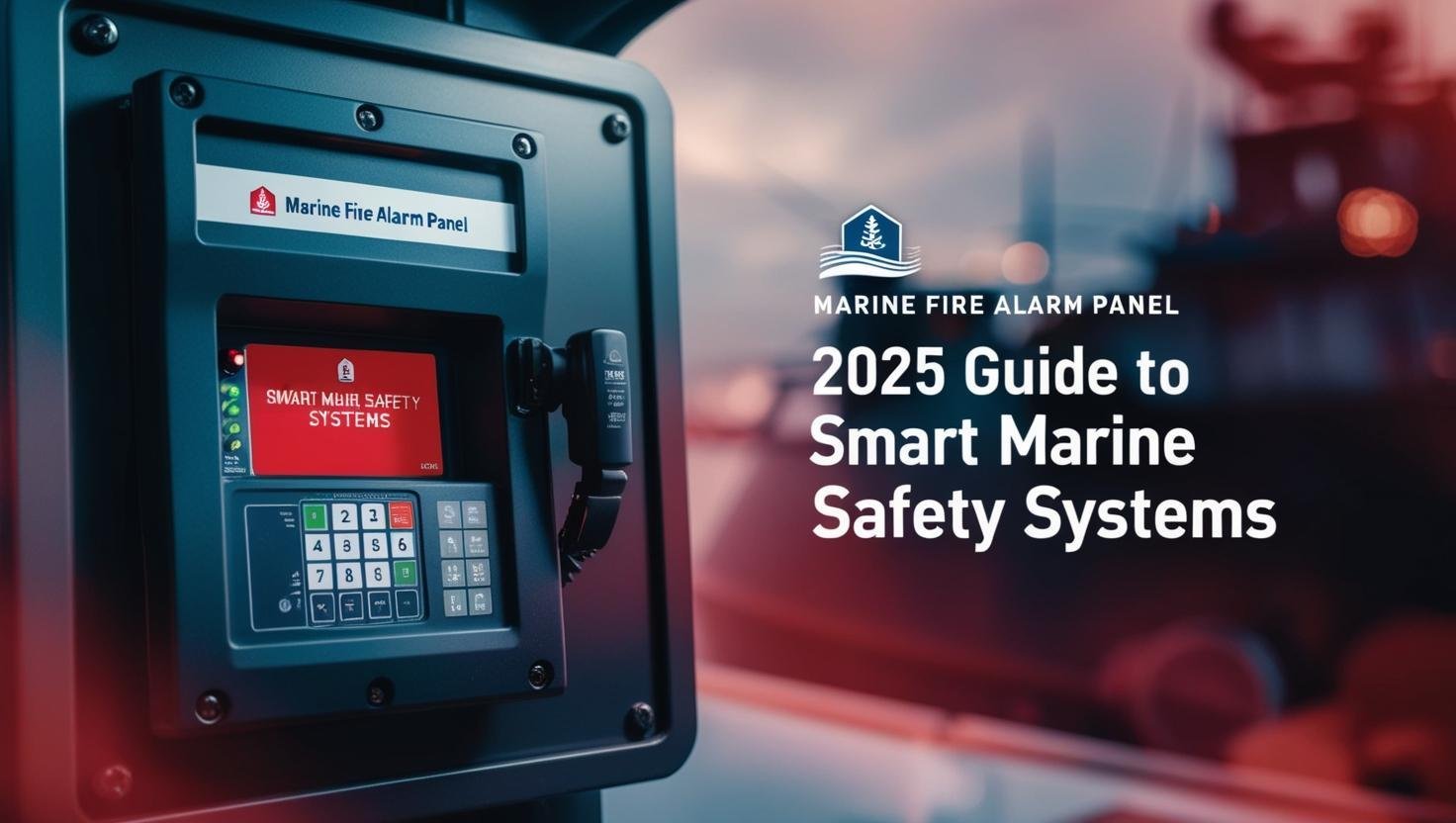Marine Fire Alarm Panel: 2025 Guide to Smart Marine Safety Systems

What Is a Marine Fire Alarm Panel & Why It’s Essential for Ship Safety
A marine fire alarm panel is the brain of your vessel’s fire detection system. It receives signals from smoke, heat, or flame detectors and triggers alarms, alerts, and in some cases, fire suppression. Designed to withstand tough marine conditions, these panels are built for real-time responsiveness and integration.
For instance, fire alarm control model series 8000 is a popular panel used in both commercial ships and offshore rigs due to its multi-zone control and DNV/ABS certifications.
A robust panel not only keeps your crew and cargo safe but also ensures compliance with global marine safety norms like IMO, SOLAS, and ABS standards.
Marine Fire Alarm Panel Market Trends (2025)
Here are some current statistics and insights driving demand for marine fire detection:
- Global marine fire detection systems market is projected to reach USD 8.4 billion by 2030, growing at 6.7% CAGR from 2024.
- According to Johnson Controls, more than 70% of maritime operators are upgrading to smart panels with remote connectivity and automated fault detection.
- Demand is rising in cargo vessels, passenger ferries, and offshore platforms, where fast, centralised alarm control is mission-critical.
Key Features to Look for in a Marine Fire Alarm Panel
Modern panels go far beyond just triggering alarms. Here’s what a high-performance marine fire alarm panel includes:
| Feature | Why It Matters |
| Multi-Zone Monitoring | Identifies exact location of fire |
| IP65/IP66 Enclosures | Water & corrosion resistance |
| Manual & Auto Reset Options | Operational flexibility |
| Buzzer & Siren Alerts | Audible alerts for emergency |
| Network Integration (Ethernet) | Remote monitoring from control room |
| Power Failure Alarms | Alerts for low voltage or outage |
| Battery Backup | Ensures protection during failures |
Where Should You Install Fire Alarm Panels Onboard?
Your marine fire alarm panel must be easily accessible and centrally located. Recommended positions include:
- Bridge or Control Room
- Engineering Rooms
- Accommodation Units (crew zones)
- Electrical Rooms
- Cargo Control Rooms
Make sure to test alarm sound levels throughout the vessel to ensure everyone hears it during emergencies.
Choosing the Right Panel: Factors to Consider
- Certifications: Always opt for systems with DNV, ABS, or Lloyd’s Register approval.
- Vessel Size: Choose a panel that supports the number of zones your ship requires.
- Expansion Capability: Useful for future upgrades or vessel modifications.
- Support and Spares: Ensure you have easy access to marine spare parts in case of hardware failure.
- Sensor Compatibility: Check if it supports a variety of sensors—smoke, heat, flame, and gas.
Maintenance Checklist for Fire Alarm Panels
Even the best panels fail if they’re not maintained properly. Stick to this maintenance schedule:
| Maintenance Task | Frequency |
| System Test | Monthly |
| Sensor Calibration | Every 6 Months |
| Firmware Update | As Available |
| Battery Replacement | Annually |
| Full Audit (with report) | Yearly |
For hardware needs or technical support, working with a trusted bop spare parts supplier in India ensures you’re not stuck in critical times.
Real-World Use: How Ships Are Upgrading Safety
Global shipping firms and Indian maritime operators are investing in fire panels that support remote diagnostics, fault logging, and mobile notifications. With the push for Make in India and enhanced maritime security, upgrading your marine fire alarm panel isn’t just smart—it’s necessary.
Reddit forums and maritime blogs are buzzing with tales of how better alarm systems have prevented disasters, from fishing boats in Kerala to offshore drilling rigs near Gujarat.
FAQs About Marine Fire Alarm Panels
Q1. What is a marine fire alarm panel?
It’s the control unit that processes fire signals from sensors and alerts the crew in marine vessels.
Q2. Are marine fire alarm panels different from commercial ones?
Yes, they are designed for saltwater resistance, vibration tolerance, and regulatory compliance like IMO/SOLAS.
Q3. Can one panel manage multiple fire zones?
Absolutely. High-end panels can monitor multiple zones and notify the exact location of the fire.
Q4. How often should I test a marine fire alarm panel?
Monthly testing is recommended, along with professional servicing every 6 to 12 months.
Q5. What happens if the panel fails during a voyage?
That’s why battery backup and reliable marine spare parts access are essential. Faults can cause insurance issues and legal consequences.
Final Thoughts
A marine fire alarm panel is not just a piece of equipment—it’s your first line of defence at sea. With smarter detection, zone-based alerts, and compliance features, a high-grade panel like the fire alarm control model series 8000 offers peace of mind for every voyage.Whether you’re outfitting a new build or upgrading an old ship, be sure you also source parts from a reliable bop spare parts supplier in India to keep your system functional in the long run.

